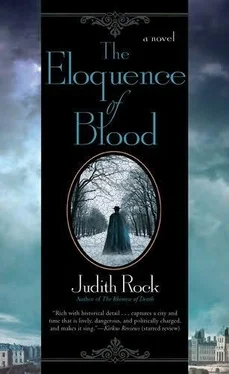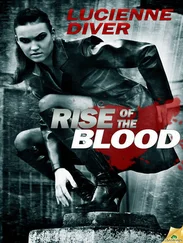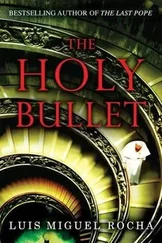Judith Rock - The Eloquence of Blood
Здесь есть возможность читать онлайн «Judith Rock - The Eloquence of Blood» весь текст электронной книги совершенно бесплатно (целиком полную версию без сокращений). В некоторых случаях можно слушать аудио, скачать через торрент в формате fb2 и присутствует краткое содержание. Жанр: Исторический детектив, на английском языке. Описание произведения, (предисловие) а так же отзывы посетителей доступны на портале библиотеки ЛибКат.
- Название:The Eloquence of Blood
- Автор:
- Жанр:
- Год:неизвестен
- ISBN:нет данных
- Рейтинг книги:5 / 5. Голосов: 1
-
Избранное:Добавить в избранное
- Отзывы:
-
Ваша оценка:
- 100
- 1
- 2
- 3
- 4
- 5
The Eloquence of Blood: краткое содержание, описание и аннотация
Предлагаем к чтению аннотацию, описание, краткое содержание или предисловие (зависит от того, что написал сам автор книги «The Eloquence of Blood»). Если вы не нашли необходимую информацию о книге — напишите в комментариях, мы постараемся отыскать её.
The Eloquence of Blood — читать онлайн бесплатно полную книгу (весь текст) целиком
Ниже представлен текст книги, разбитый по страницам. Система сохранения места последней прочитанной страницы, позволяет с удобством читать онлайн бесплатно книгу «The Eloquence of Blood», без необходимости каждый раз заново искать на чём Вы остановились. Поставьте закладку, и сможете в любой момент перейти на страницу, на которой закончили чтение.
Интервал:
Закладка:
Charles, grim-faced, made for the outer door. So Brion had lied to Martine. If, of course, the clerk was telling the truth and hadn’t simply failed to notice Brion. But the man’s obviously low opinion of the notary matched old Callot’s, and Charles saw no reason not to accept it. Seething with anger, he went back through the passage and across the Place to the bridge, walking so fast he nearly missed The Saracen’s Nose. It was the run-down ground floor of a house with a timber lower story. Its old window glass was thick and grimy, and the whole building seemed to be leaning tiredly toward the river. Inside, tallow candles reeked, firelight flickered, and the ceiling was black with smoke. A half dozen men were ranged on benches at two long trestle tables with small coffee bowls in front of them, but the sounds from a back room made it clear that coffee was not the Saracen’s primary business. The clatter of dice, the whirring of shuffled cards, anguished cries, and raucous laughter announced high-stakes gambling. Taking off his clerical hat to make himself somewhat less noticeable, Charles slid into the shadows and along the walls, scanning the benches for someone who looked like he might be Brion, but not finding any candidates. When he reached the back room’s closed door, he pushed it open and called affably, “Henri Brion?”
Most of the men didn’t even look up. “Not here,” someone yelled back, shaking his dice.
Standing slightly aside from the door, Charles yelled back, “Seen him?”
Heads shook and a few men glanced vaguely toward the door. “Not today.”
Charles slid back along the walls, but now the stout woman who had been behind the counter was coming toward him, watching him narrowly. Charles put his hat on, smiling benignly, sketched a cross in the air, and left her staring after him as he let himself out again into the snow.
He crossed the Ile, making for the rue Perdue. The snow was slacking, but it was ankle deep and the footing had grown even more treacherous. By the time he reached the Place Maubert, his shoes were soaked. Remembering what had happened to the lay brother a few hours ago, he crossed the Place warily, watching the doorways. But few people were out, and he reached the Brion house without incident. The same awkward footman answered the door, still trying to pull his faded sleeves down to meet his wrist bones and seeming even more uneasy than he had yesterday.
“Oh. My lady is not-that is-no one is-”
“I have come to see your master,” Charles said.
“Oh. No, he-I mean, I already told your lay brother who came earlier. My master is not here.”
“Yes,” Charles said, thinking about that brother’s cut and bruised face, “I know you told Frere Guiscard. When is Monsieur Brion likely to return?”
The footman shook his head, looking everywhere but at Charles. “He-ah-went out-very early. No one has-but we’re not supposed-I mean, we never-I don’t know!” He jerked a bow and closed the door in Charles’s face.
Charles raised a fist to knock again, then shrugged and started back toward the Place, wondering how many coffeehouses there were in Paris, and how many he would have to search before he found Brion. Enough, probably, that he should warn Pere Le Picart not to count on seeing Brion this afternoon.
The snow had stopped. Apprentices were beginning to sweep the paving stones in front of shops, and a few shivering maids with pitchers and jugs were picking their way to the Place’s fountain. A church bell struck the hour. Charles was counting the strokes, thinking he was going to be late for dinner, when someone hissed behind him. He swung around and a glaring apprentice raised his broom like a shield.
“There may be snow serpents somewhere,” Charles drawled, knowing even as he said it that the boy was not going to laugh. “But there are none in Paris. Speak.”
The boy backed away, but his glare lost none of its malevolence.
Charles sighed. “Hear me, mon ami. I, too, am grieving for Mademoiselle Martine Mynette. You would do better to pray for her soul than make witless accusations.”
“Not so witless! Convenient for you she’s dead, now you’ll get the Mynette money!”
“The money will go by law where it is supposed to go.” Charles advanced on the boy. “Who is spreading this slander about Jesuits?”
Swinging the broom wildly at Charles, the boy ducked into a baker’s shop and slammed the door. Charles turned away, sick at heart. Who was spreading this anti-Jesuit slander?
From what he’d been told, the University of Paris was usually the first answer when that question had to be asked. But this poison seemed to be spreading from the Place Maubert, not the rue St. Jacques. Jansenists were always a possibility, and there were no doubt Jansenists among the artisans of the Place Maubert. The Jansenists, though Catholics, were so strict and sober minded they seemed more Protestant than the Protestants, and they thoroughly disapproved of the more tolerant and worldly Jesuits. Such an incendiary word worldly could be. Yet the world was where everyone lived, even those in monasteries and Jesuit houses. As far as Charles could see, that included even saints, because when mystical ecstasies ended, where else was there to come back to? For beings of spirit and flesh, the world then was inescapable, as long as life lasted. And if God was not to be found in the world He had made, then where? Absorbed in his theological argument, Charles turned down a narrow lane, hoping to cut a little distance from his walk to the college. Jesuits were called worldly because-at their best, anyway-they used whatever seemed good and innocent in God’s world to help people toward God. But what could be wrong with that? He shook his head in exasperation. Of course, distinguishing between goodand-worldly on the one hand, and sinful-and-worldly on the other, involved thinking. And how many people chose to think, rather than enjoy pleasantly horrified and self-righteous feelings?
Charles stumbled over a loose paving stone, skinned his hand against a wall trying to recover his balance, and swore aloud. No one was in sight-just as well, considering his worldly swearing-but he had the sudden sense that the air around him was listening intently. His scalp tingled. The Silence had not visited him in a long time. During the autumn, he’d longed for the comfort of it, but it had not come. The secret Charles kept even from his confessor was that he’d become a Jesuit because he wanted to come as close to God as a man could, wanted to reach God’s heart. And wanted to do that while solidly rooted in God’s good world, not from behind cloister walls. In his hunger for the Silence, he’d promised himself that if it ever visited him again, he would fall on his knees-on his face, even-in utter gratitude, no matter where it found him. Instead, he did what he usually did when it came. He argued. Which was just as well, considering that he was standing in snow to his ankles.
How could You allow Martine’s death? he demanded. Why? She was so young. She was innocent, good, beautiful.
The air itself seemed to bite back at him. No one young and innocent and good ever dies?
This was murder, Charles flung silently back.
For a long moment, nothing moved at all. Then the air seemed to sigh. I know something of blood, the Silence said.
Chastened, Charles bowed his head. Yes. But Your blood was for healing. What can be worth this girl’s death?
Worth? the Silence said. Life and death are a bargain?
Not a bargain, Charles thought back. But does death mean nothing?
A small cold wind breathed along the lane. Nothing is wasted, the Silence said. And added, Unless you waste it. And was gone.
Charles stumbled out of the lane, breathing as though he’d been running and wondering why he’d longed so desperately for the Silence to come back when it only gave him answers he didn’t want.
Читать дальшеИнтервал:
Закладка:
Похожие книги на «The Eloquence of Blood»
Представляем Вашему вниманию похожие книги на «The Eloquence of Blood» списком для выбора. Мы отобрали схожую по названию и смыслу литературу в надежде предоставить читателям больше вариантов отыскать новые, интересные, ещё непрочитанные произведения.
Обсуждение, отзывы о книге «The Eloquence of Blood» и просто собственные мнения читателей. Оставьте ваши комментарии, напишите, что Вы думаете о произведении, его смысле или главных героях. Укажите что конкретно понравилось, а что нет, и почему Вы так считаете.












